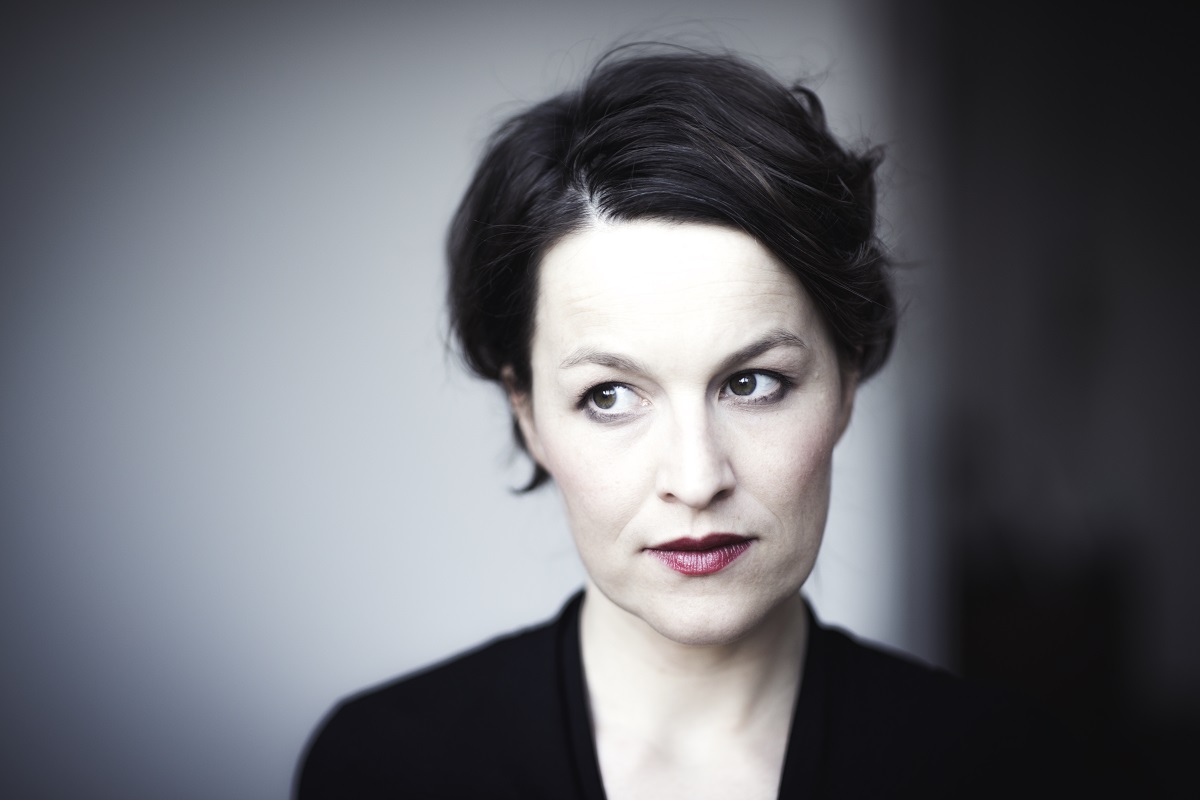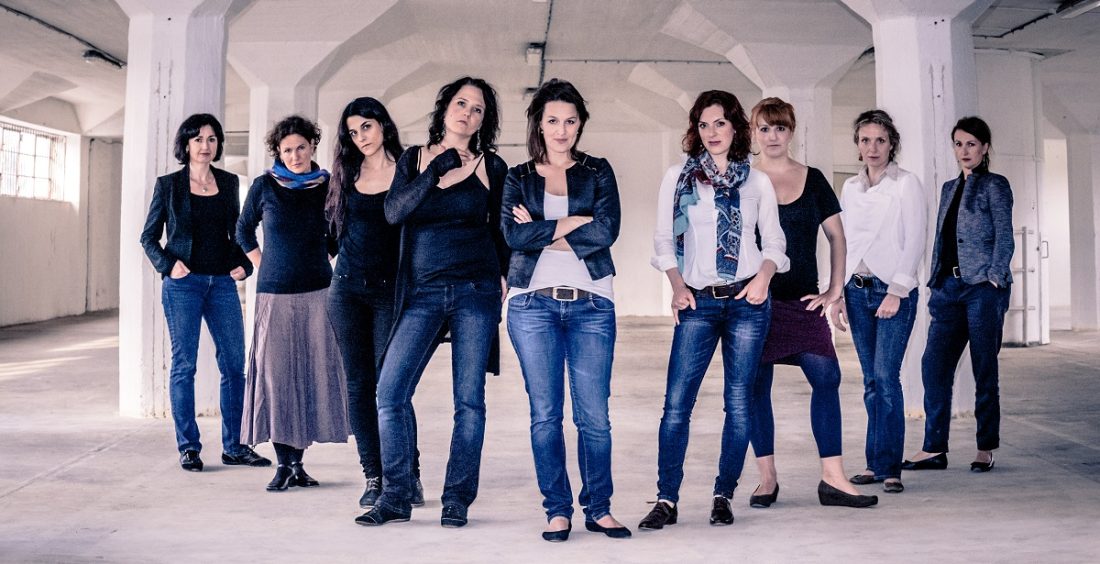Tiburtina Ensemble/
Visions and Dreams
Programme
- Beatritz de Dia: A chantar m'er de so qu'eu no volria
- Michal Nejtek: new work written to texts by medieval trobairitz commissioned by the Prague Spring
Performers
- Tiburtina Ensemble
- Barbora Kabátková – artistic director
- Margit Übellacker – psaltery
- Marco Ambrosini – nyckelharpa
- Catalina Vicens – organetto
- Martin Novák – percussion
Visions and Dreams
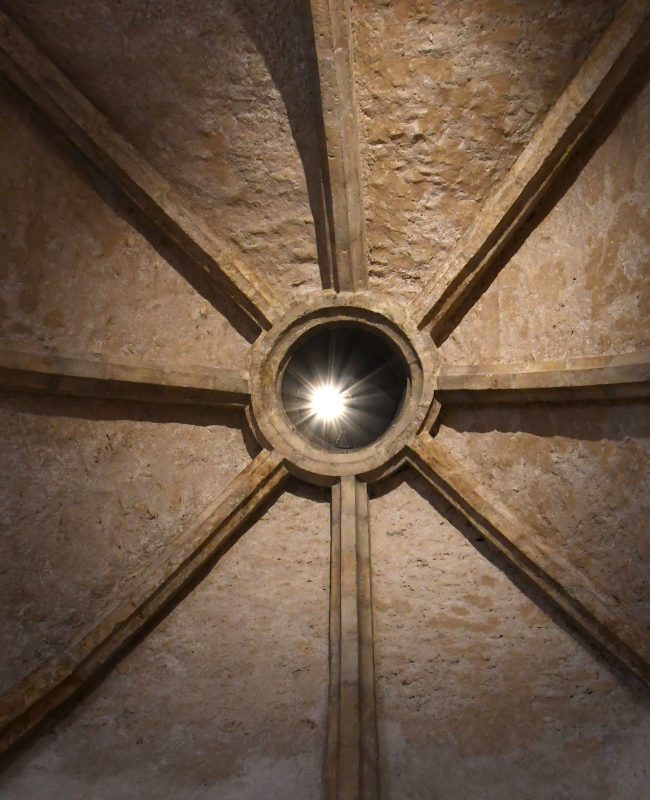
Visions and Dreams
Visions and Dreams – that is the name of a Prague Spring project that will present three concerts in a single day with the best Czech and foreign musicians specialising in the historically informed interpretation of early music.
Contemporary context
The long-forgotten world of female troubadours, known as “trobairitz”, reaches us from the turn of the 12th and 13th centuries like a faint ray in the form of fragmentary, distorted information and a torso of preserved legacy. The more the mystery is shrouded, the greater the desire becomes to revive it artistically, not based on historical reconstruction, but as a basis for a new work of full concert length, in which the intellectual world of the female troubadours is put into a contemporary context. That, in a nutshell, is the main idea of the project, prepared on commission from the Prague Spring Festival by its initiator Barbora Kabátková, a singer and artist director of the female vocal ensemble Tiburtina Ensemble, the composer Michal Nejtek, and the librettist Jiří Adámek.

An ideal option
Female troubadours (like their male colleagues) wrote verses of lyrical love poetry, set them to music, and performed them at the aristocratic courts of Occitania. They themselves mostly came from the nobility. They were probably the very first female composers in Western culture to write secular music and moreover with texts in the vernacular—the Occitan language. However, unlike the troubadours—with the single exception of the song A chantar m’er de so qu’eu no volria by Beatritz de Dia—their music has not been preserved; only their texts are known. “I have long been dreaming of reviving the poetry of the female troubadours”, says Barbora Kabátková. “The question remained of how to go about it. Originally, I thought their texts could be fitted to melodies by the troubadours. But when the offer came from the Prague Spring Festival to develop this theme in collaboration with Michal Nejtek and to supply the texts of the female troubadours with a new, contemporary musical form, it struck me as an ideal way to bring these nearly forgotten verses and their female authors to the attention of today’s world”.
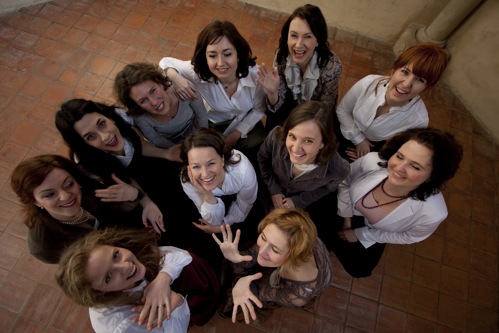
The composer and pianist Michal Nejtek (* 1977) is a prominent Czech composer of international renown. He writes symphonic works and chamber music and devotes himself to projects for the stage. He loves jazz, alternative music, and the classics; in his own words: “everything that is original, truthful, and strong”. He has received commissions from prestigious international festivals including the Donaueschinger Musiktage (Thorn into the Flesh, 2002), Warsaw Autumn (Distress Sonata, 2002), Klangspuren (Frame Dreams, 2006), and Prague Spring (Ultramarine, 2018). For the Dutch ensemble De Volharding he composed Irritating of Inland (2003), on commission from the National Theatre in Brno he composed the opera The Rules of Good Behaviour in Modern Society (2017), and for the Brno Philharmonic he wrote a symphony for orchestra and piano titled The Basement Sketches (2020). He composes regularly for the MoEns Ensemble and the Berg Orchestra. He collaborates with the band The Plastic People of the Universe (I Walked Around Five Fields, The Passion, A Train Opera, Leading Horses), and for more than ten years he was the pianist and programming director of the Agon Orchestra. He plays keyboard instruments in the ensembles NTS (Nejtek/Tichý/Smetáček) and Michal Pavlíček and Trio. As a composer of music for the theatre, he has collaborated with the stage directors Arnošt Goldflam, Jiří Ornest, Jiří Havelka, Jiří Adámek, and the directing duo SKUTR. He teaches at the Academy of Performing Arts in Prague.
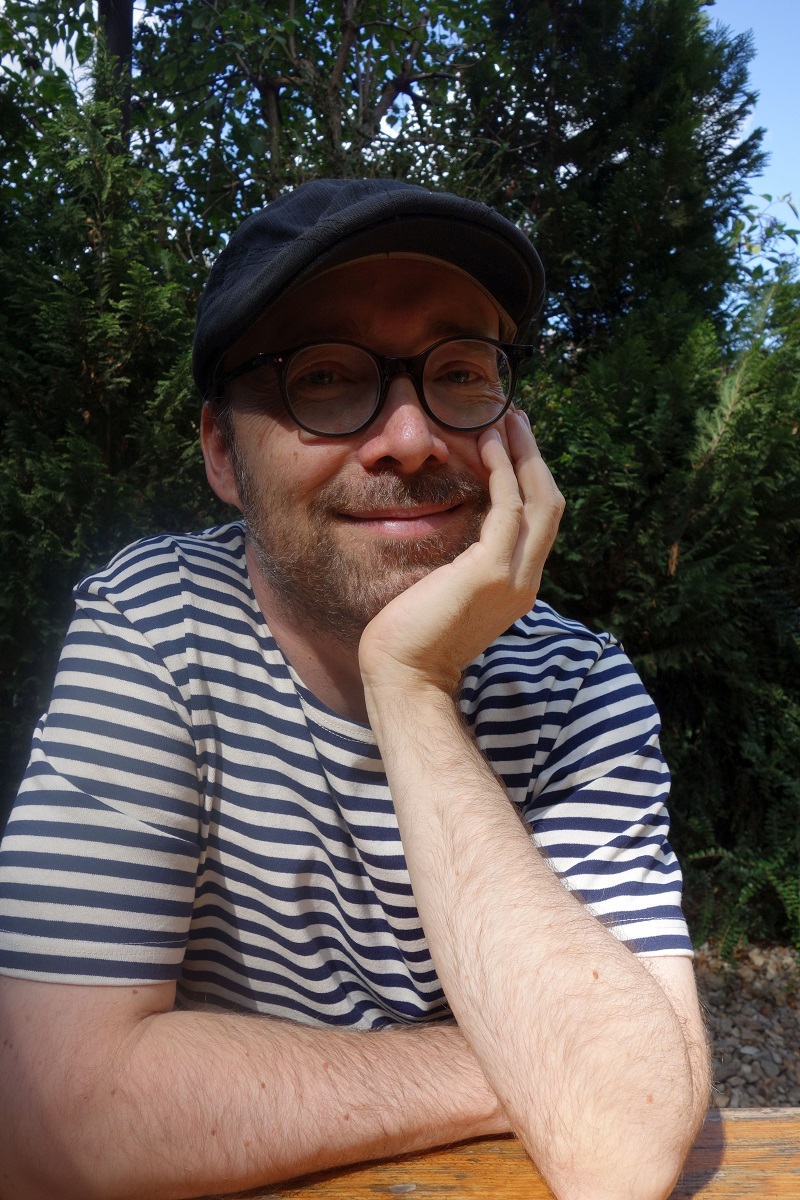
Prophetess Tiburtina
The female vocal group Tiburtina Ensemble was founded in 2008. It devotes itself to the interpretation of Gregorian chant, medieval polyphony, and contemporary music. Over the years, it has firmly established itself as one of the top ensembles in the field of the interpretation of Medieval Music. It took its name from a historical figure of the Middle Ages. Tiburtina (the Tiburtine Sibyl) was a prophetess who became the most important Sibyl of the Middle Ages primarily because her prophecies were closely tied to Christianity.
At the ensemble’s concerts, we can hear purely vocal repertoire based on medieval liturgical sources and repertoire for voices with instruments presenting both sacred and secular music of the Middle Ages. The activities of Tiburtina also include untraditional projects such as collaborations with the Berg Orchestra (Magnificat for Two Scholas, Orchestra, and a Liturgical Space by Slavomír Hořínka) or the David Dorůžka Jazz Trio (the crossover project Apokalypsis).
The ensemble has given concerts at many important festivals in this country and abroad, including the Prague Spring Festival, the Saint Wenceslas Music Festival in Ostrava, BOZAR in Brussels, and Oudemuziek Utrecht. It has several CD recordings to its credit on the Supraphon, Animal Music, Deutsche Harmonia Mundi, Ricercar, and Accent labels. The latest additions to the ensemble’s discography are this year’s Paradisi Porte and The Jistebnice Hymnal. Besides its core repertoire, in the coming seasons the Tiburtina Ensemble will also be giving premieres of works by contemporary composers. In the 2022/23 season it will appear in the USA for the first time on important stages in New York and Boston.
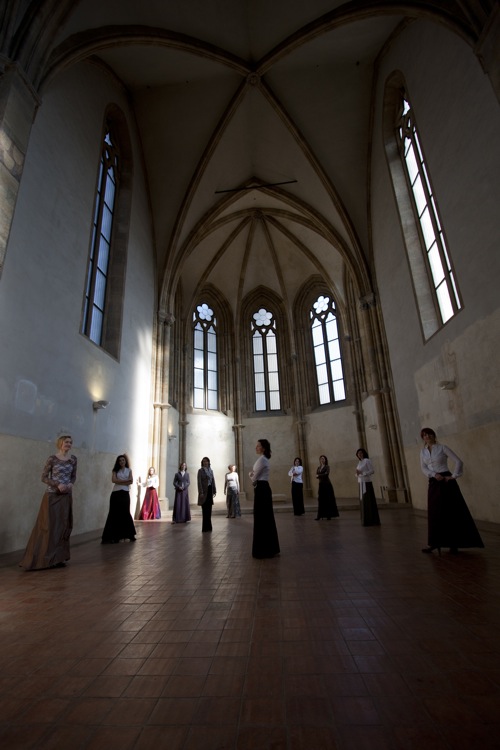
Expert on Gregorian chant
The ensemble’s leader and programming director is Barbora Kabátková, a graduate of the sacred music choral conducting department at the Charles University Faculty of Pedagogy in Prague and of the musicology department at the same university’s Faculty of Arts, where she is now pursuing a doctorate specialising in Gregorian chant. She has studied singing privately. She found the path to early music thanks to masterclasses led by Marius van Altena, Peter Kooy, Julie Hassler, Howard Crook, and Joel Frederiksen. Besides singing, she also plays medieval harps and the psalterium. She has collaborated with many prestigious ensembles including Collegium Vocale Gent, Collegium 1704, Il Gardellino, and the Ricercar Consort. In projects focusing on contemporary music, she has appeared with the Berg Orchestra, Ostravká banda, and the NDR Elbphilharmonie in Hamburg. In 2014 she collaborated with the Eben Brothers on the song Routa for their latest album Čas holin.
